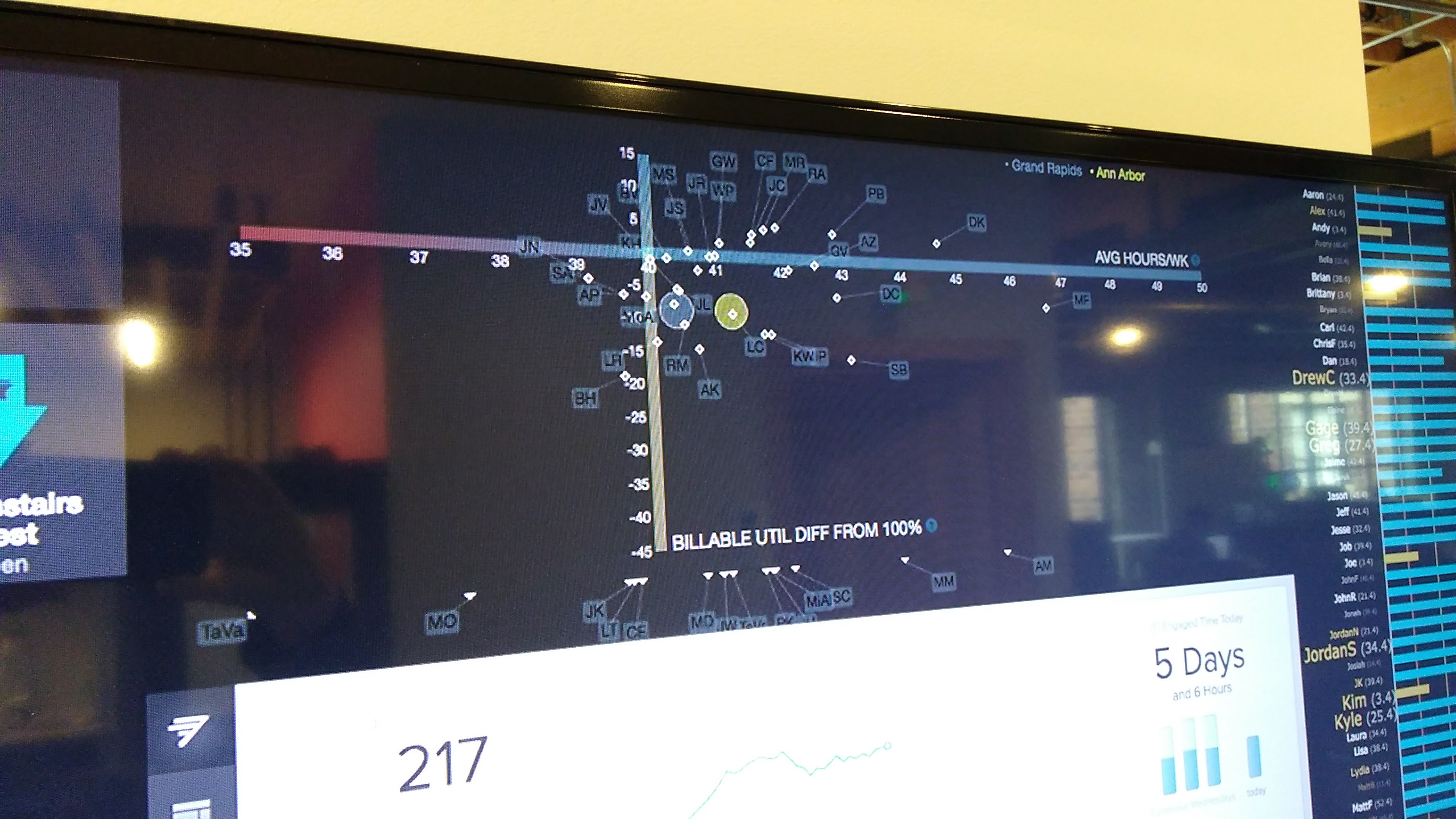How do you know your work focus and level of effort are staying on target for your individual, team, and company goals? Even if you are confident in your personal work focus, are you confident your team members are contributing appropriately? Can you clearly see that other teams are giving enough effort to meet their goals? Can you see the balance and effort of company-level priorities? Do you worry that distractions are stealing people’s time from priority work?
Focus is a critical element of healthy company performance. It helps companies execute faster and better because everyone is working in alignment with known, shared, and measurable goals.
One of the reasons we track our time in detail at Atomic Object is to better stay focused and manage our priorities.
This is the second in a series on the benefits of detailed time tracking:
- Atomic’s Approach to Time Tracking
- Time Tracking for Focus
- Time Tracking for Fairness
- Time Tracking for Sustainability
- Time Tracking for Growth
Individual Focus
Staying focused at an individual level is important to me because there are many tasks, people, and opportunities competing for my attention. I create a plan for my personal time focus and track my time against my plan to see that I’m putting in enough overall effort and appropriately managing my priorities.
Time tracking data helps me:
- Manage my calendar at a weekly level to make sure I stay on track with my goals
- Know when I need to ask for help and make time-demand gaps visible at a team or company level
- Say “no” to inviting distractions I shouldn’t take on
I split my time across sales and a few office-level initiatives. The importance and immediacy of sales work can easily eclipse the important but non-urgent initiative work.
Every week I review my time data to see if I’m meeting, on average, the hours throughput I’ve committed to for my initiative work. Does it work? I’ve been able to share my sales workload to other team members when I can see I’d be starving my initiative time in upcoming weeks. And I recently framed a new, valuable opportunity and knew I needed to hand it off to someone else to lead them because I could clearly see I couldn’t responsibly take on more commitments.
At Atomic, Makers working on client projects are the key drivers of revenue. We believe they can self-manage their time more effectively and efficiently when they have clear targets. Our time tracking system and KPI radiators show time and utilization targets against actual contributions for billable and non-billable activities. Makers track and review their individual time to help balance their billable time with other activities like blogging, community events, or hiring.
Team Focus
Tracking time at the team level is important to make sure projects stay on track with a predictable level of effort.
Some of my initiative work is part of a team effort. As a team, we can plan our upcoming weekly contributions to stay on target as a whole. By tracking our collective time, we can:
- See if distractions are affecting us collectively.
- Keep ourselves accountable to project stakeholders and show the project is getting attention.
- See if any lack of progress stems from poor estimates or lack of effort. If there is a lack of effort, we can identify the distractions and make decisions on how to manage them.
Time tracking is a critical business function for Atomic’s client-project teams, as Atomic invoices clients based on hours spent on projects during an invoice period.
Atomic’s client-project teams track time to make sure they keep focus on:
- Contributing the expected amount of time each week as a whole.
- Managing the project to budget and appropriately prioritizing work within the remaining budget.
- Predicting additional contract and budgeting activity dates (funding comes in tranches for some projects).
- Keeping our client invoices predictable and fairly smooth if necessary (sometimes cashflow predictability is important to our clients).
- Judging invoices for value delivered against time spent.
Company Focus
As part of Atomic’s management team, I’m accountable for office and company-level performance. I want to make sure we appropriately focus and balance our business functions.
By using time data, I can easily see we are in healthy zones for:
- Overall billable utilization.
- Sales effort required to keep project teams busy with interesting work.
- Growth initiatives balance and effort versus operational responsibilities.
Atomic can use billable-time as a high-level, leading indicator of overall financial health. Our management team can make informed decisions, anticipate, and clearly see the impact of making adjustments to individual or team focus between billable and non-billable activities.
We can better plan and execute strategic initiatives based on estimated and actual time spent. The ability to measure strategic execution throughput helps us stay focused on our company-level priorities.
The Focusing Power of Trust
Anyone at Atomic can see everyone’s time data. This high degree of transparency and accountability related to time data reinforces trust between Atomic employees and with our clients. Everyone can see what’s actually going on. Trust increases overall speed and quality of execution. We can stay focused on value creation instead of worrying about sandbagging, distractions, or personal interests starving commitments.
This post is part a series on the case for detailed time tracking and how time tracking supports healthy performance.
- The Flourishing Triangle: Why Remote Work is Kryptonite for Positive Connections - July 25, 2022
- Pack Your Higher Purpose for the Long Haul - July 6, 2022
- Return To Office – A Time for Context-Based Leadership - May 16, 2022
- Resilience Doesn’t Come From Being Resilient - August 11, 2021
- Pursuing Social Excellence through Co-located Work - May 10, 2021


